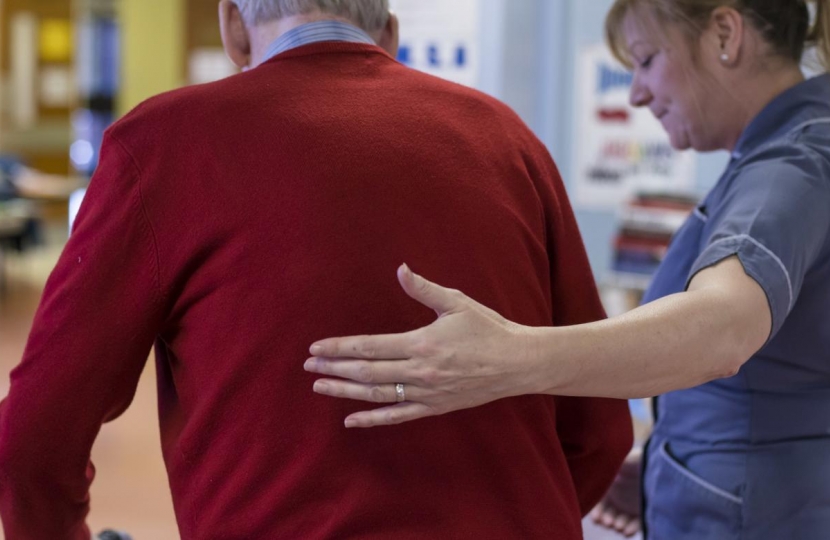
World Parkinson’s Day falls on 11 April (next Wednesday), and the 2018 #UniteForParkinsons campaign is already well underway. As ever these days, social media campaigns tend to take centre stage, but I wanted to take this opportunity to highlight it in the local press.
It was in 1817 that Dr James Parkinson published “An Essay on the Shaking Palsy” and brought medical recognition to the condition that would bear his name. Parkinson's is a degenerative neurological condition, for which there is currently no cure. The main symptoms of the condition are tremor, slowness of movement and rigidity.
The public are often made aware of Parkinson’s through the stories of high profile figures who have been diagnosed. The list includes George HW Bush, Pope John Paul II, Muhammad Ali, Billy Connolly, Neil Diamond, Michael J Fox, Roger Bannister and others.
Janet Reno, America’s first female Attorney General (my counterpart) and the second-longest serving Attorney General in US history, was diagnosed with Parkinson’s in 1995 – two years into her eight-year term. She died in 2016, as a result of complications connected with the condition.
But Parkinson’s affects a much wider group than those in the media spotlight. Every hour, two people in the UK are told they have Parkinson's. It affects 145,000 people here, which is around one in 350 of the population in the Kenilworth and Southam constituency. My own father also suffered from Parkinson’s. With the number of people affected expected to increase by a fifth by 2025, Parkinson’s UK is doing excellent work to change attitudes about Parkinson’s in order to make life better for everyone living with the condition.
Sadly, the physical symptoms are not the only difficulty that those with a diagnosis face. A recent survey found that 32% of people with Parkinson’s have been stared at in public and the same percentage did not feel that their symptoms were socially acceptable. Shockingly, more than one in ten have been laughed at as a direct result of the condition. This has to change.
One of the aims of the 2018 #UniteForParkinsons campaign is to show people what living with Parkinson’s is like and to create more awareness of the condition. I hope that those reading this will spread the message to their friends and families, so that people with Parkinson’s can count on our understanding and support as they battle this debilitating condition.
For advice, information and support, you can visit www.parkinsons.org.uk or call the free, confidential helpline on 0808 800 0303.
